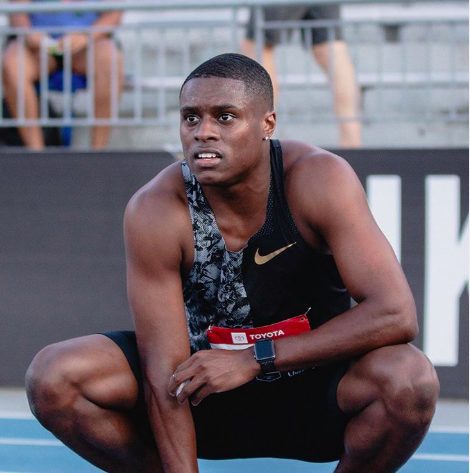Christian Coleman still out of Olympics after appeal with CAS
Coleman's ban was reduced from two years down to 18 months, but it's not enough to get him on the start line in Tokyo this summer

The Court of Arbitration for Sport (CAS) has reduced American sprinter Christian Coleman‘s two-year doping ban to 18 months, but the 100m world champion will still miss the Tokyo Olympics this summer. The Athletics Integrity Unity (AIU) originally banned Coleman from competition until May 2022 following whereabouts failures in 2019, but following his appeal with the CAS, he will now be eligible to race as early as November of this year.
The Court of Arbitration of Sport has issued its decision in Christian Coleman's appeal.
His ban for whereabouts failures has been reduced from two years to 18 months. It now expires on November 14, 2021 — meaning he will still miss this summer's Olympics. pic.twitter.com/t3CyuoPlVa
— Jonathan Gault (@jgault13) April 16, 2021
While his appeal was partially successful, Coleman had hoped for a bigger win with the CAS that would have allowed him to race in Tokyo. After his win in the 100m at the 2019 World Athletics Championships in Doha, Qatar, Coleman was the heavy favourite to win gold in Tokyo. His 9.76-second winning time in Doha is the sixth-fastest 100m result in history.
RELATED: Christian Coleman must serve 2-year suspension after all
Coleman was originally suspended and then banned from competition after he missed three anti-doping tests in a 12-month span. Three missed tests (which are one of two ways to register a whereabouts failure) in a one-year window earns athletes the same consequences as a positive drug test. Coleman’s third missed test came in December 2019, and the AIU suspended shortly afterward. Coleman claimed that he was home when the testers said they were waiting outside his house, but an AIU investigation found this to be false, and he was subsequently banned.
This was the second time Coleman had been busted for whereabouts failures, although he got off on the first occasion thanks to a loophole in the system. This loophole allowed him to compete in Doha, where he won his first world championship crown.
Christian Coleman, expected by many to succeed Usain Bolt as Olympic champion in the 100 meters, will miss the Tokyo Games after failing to overturn his ban for missed doping tests. The ban was cut to 18 months, but it won’t expire until November. https://t.co/RGZEqgjrnr
— AP Sports (@AP_Sports) April 16, 2021
Still claiming that he had been treated unfairly, Coleman didn’t accept his ban from the AIU, and he took his case to the CAS. The three-person CAS panel determined that, while Coleman “had indeed committed an anti-doping rule violation under Article 2.4 of the World Athletics Anti-Doping Rules,” his “degree of negligence [was] lower than that established” by the AIU.
RELATED: More than half of Bahrain’s athletics medals are tainted by doping scandals
One of Coleman’s main complaints in his case with the AIU was that he wouldn’t have missed his December 2019 test had the anti-doping officials called him. Anti-doping rules are clear that testers are not required to make a phone call (being present for a test is the responsibility of the individual athlete), but the CAS said “it was nevertheless reasonable for the athlete to expect such a call.” Finding Coleman still guilty of missing three tests, the CAS refused to eliminate his ban entirely, or to reduce it enough so he would be able to compete at the Olympics.


